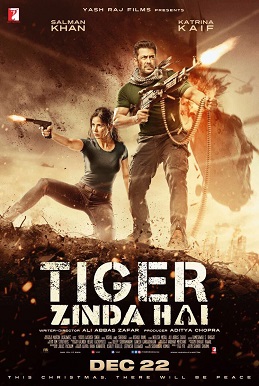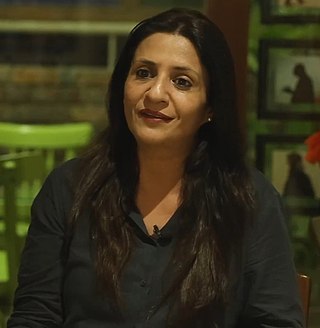Related Research Articles

Shiv Sena (1966–2022) was a right-wing Marathi regionalist Hindutva-based political party in India founded in 1966 by Bal Thackeray, who was later succeeded by Uddhav Thackeray. The party is split into two parties: the Uddhav Thackeray-led Shiv Sena which has a new symbol of Mashaal (Torch) and Eknath Shinde-led Shiv Sena (2022–present) which has gotten hold of the original party name and the "bow and arrow" symbol.

Bilawal Bhutto Zardari is a Pakistani politician who served as the 37th Minister of Foreign Affairs, in office from 27 April 2022 to 10 August 2023. He became the chairman of Pakistan People's Party in 2007 following his mother's assassination. Bilawal belongs to the Bhutto family, a prominent political family of Pakistan and is the son of former Prime Minister Benazir Bhutto and President Asif Ali Zardari, and the grandson of former President Zulfikar Ali Bhutto. Bilawal was a member of the National Assembly of Pakistan from 13 August 2018 till 10 August 2023. He was re-elected as a Member of the National Assembly of Pakistan in the 2024 Pakistani general election from newly formed constituency NA-194 Larkana-I, taking oath in February 2024.

Mahira Hafeez Khan is a Pakistani film and television actress. One of the most popular and highest-paid actresses of Pakistan, she is the recipient of several accolades, including seven Lux Style Awards and seven Hum Awards.
There are or have been a number of separatist movements in Pakistan based on ethnic and regional nationalism, that have agitated for independence, and sometimes fighting the Pakistan state at various times during its history. As in many other countries, tension arises from the perception of minority/less powerful ethnic groups that other ethnicities dominate the politics and economics of the country to the detriment of those with less power and money. The government of Pakistan has attempted to subdue these separatist movements.
Lal Khan was a political activist and Marxist political theorist.
Anti-Pakistan sentiment, also known as Pakistan-phobia, Pakophobia or Pakistanophobia, refers to hatred, fear, hostility or irrational fixation toward Pakistan, Pakistanis and Pakistani culture. The opposite is pro-Pakistan sentiment.
The Pakistan national cricket team toured India in the 1998–99 season. The two teams played two Tests. The series was drawn 1–1. The teams were originally scheduled to play three Tests but, the third Test became part of the 1998–99 Asian Test Championship.

Shilo Shiv Suleman is an Indian contemporary artist. Her work encompasses illustration and installation art. Shilo's practice focuses on the intersection of magical realism, art for social change and technology. In most recent years, she's been engaging with biofeedback technology and the interaction between the body and art. She has created large-scale installations that beat with your heart, apps that react to your brainwaves and sculptures that glow with your breath. She has also designed installations for some of the world's biggest festivals and conferences including Burning Man. She is the founder and director of the Fearless Collective that has over 400 artists who use art to voice their protest against gender violence.

Tiger Zinda Hai is a 2017 Indian Hindi-language action thriller film written and directed by Ali Abbas Zafar based on a story by Zafar and Neelesh Misra. Produced by Aditya Chopra under Yash Raj Films, it serves as a sequel to Ek Tha Tiger (2012) and is the second instalment in the YRF Spy Universe, and stars Salman Khan and Katrina Kaif reprising their roles from the predecessor. Almost eight years since the events of Ek Tha Tiger, Tiger and Zoya find themselves pulled out of hiding to save nurses held hostage by the ISC, a terrorist organisation based in Iraq.
Feminism in Pakistan refers to the set of movements which aim to define, establish, and defend the rights of women in Pakistan.This may involve the pursuit of equal political, economic, and social rights, alongside equal opportunity. These movements have historically been shaped in response to national and global reconfiguration of power, including colonialism, nationalism, Islamization, dictatorship, democracy, and the War on Terror. The relationship between the women's movement and the Pakistani state has undergone significant shifts from mutual accommodation to confrontation and conflict.

Adeela Suleman is a contemporary Pakistani sculptor and artist, based in Karachi. She is known for the social and political commentary underlying her sculptures, which are created out of mundane, everyday objects.

The Aurat March is an annual socio-political demonstration in Pakistani cities such as Islamabad, Karachi, Lahore, Multan, Peshawar and Islamabad to observe International Women's Day.
Girls at Dhabas is a multi-city feminist initiative in Pakistan that raises a conversation on women’s access to public space. Dhabas is a local term for roadside tea-shops that are traditionally male-dominated domains in South Asia. The efforts went viral in 2015 and gained significant traction from women across South Asia who were encouraged to photograph themselves at dhabas and upload the pictures on social media using the hashtag #girlsatdhabas, sharing their personal narratives, reflections and stories re-examining their relationship with public space. The viral campaign led to organized gatherings and offline events, from cricket playing in the streets, bike rallies in Karachi, Lahore, and Islamabad, and various community-building dialogues.
Sadia Khatri is a Pakistani writer, photographer and feminist based in Karachi. She has worked as a journalist at Dawn and The Kathmandu Post, and as a reportage editor with Papercuts Magazine. Khatri is also one of the founders of the feminist collective Girls at Dhabas.
Rumana Husain is an artist, educator and a children's writer from Karachi, Pakistan. She is the author of over 60 children's books and the coffee-table book, Karachi walla - A subcontinent within a city.
Amna Mawaz Khan is a Pakistani dancer, theatre artist, feminist and political worker. She is founding member of Women Democratic Front.

YRF Spy Universe is an Indian media franchise and shared universe centered on a series of spy action films, which feature various fictional RAW agents. The franchise also includes comic books, graphic novels and video games. The films are produced and distributed by Yash Raj Films.
Lodhi Art District is India’s first open-air public art district, located in Lodhi Colony, New Delhi. It is a vibrant cultural and artistic hub, featuring large-scale murals and street art created by artists from India and around the world. Developed as part of an initiative by the St+art India Foundation, the district is a testament to the transformative power of public art in urban spaces.
Why Loiter? is a women-led campaign in India that aims to reclaim public spaces for women and challenge patriarchal societal norms. It was initiated in 2014 by Devina Kapoor and Neha Singh in Mumbai, India. The campaign draws inspiration from the book Why Loiter?: Women and Risk on Mumbai Streets authored by Shilpa Phadke, Sameera Khan, and Shilpa Ranade, published in 2011. It emerged as a response to the prevalent risks faced by women while navigating the streets of Mumbai, particularly in light of highly publicized cases of sexual violence such as the 2012 gang rape in Delhi and the 2014 rape of a woman by her Uber taxi driver in Delhi.
References
- ↑ Jan 29, Joeanna Rebello / TNN / Updated. "Artists reclaim city streets for women | Chennai News - Times of India". The Times of India.
{{cite news}}: CS1 maint: numeric names: authors list (link) - ↑ Puri, Nikita (6 February 2016). "Taking on social issues with brave art". Business Standard India.
- ↑ "The Fearless Collective: Fighting Oppression with Beauty". Groundviews. 17 May 2023. Retrieved 5 September 2023.
- ↑ "Fearless Collective Takes to the Streets". www.platform-mag.com.
- ↑ "The Artful Result Of Creativity And Fearlessness". Kashmir Observer. 3 August 2023. Retrieved 5 September 2023.
- ↑ "Fearless Collective's Mural Unveiled in Slave Island - Roar Media". roar.media. 18 May 2023. Retrieved 5 September 2023.
- ↑ Reporter, A. (10 January 2016). "Artists, activists join evicted I-11 residents calling for resettlement". DAWN.COM.
- ↑ Masood, Tooba (2 December 2015). "The 'fearless collective' in Lyari". DAWN.COM.
- ↑ "This Indian Artist Visited Pakistan To Draw Graffiti On Fearlessness And It's Beautiful". IndiaTimes. 15 December 2015.
- ↑ "How artist Shilo Shiv Suleman's Fearless Collective broke barriers in Pakistan". Firstpost. 10 January 2016. Retrieved 5 September 2023.
- ↑ "J-K: Zoya Khan's murals amplify voices of Kashmir's unsung heroines". ANI News. 4 August 2023. Retrieved 5 September 2023.